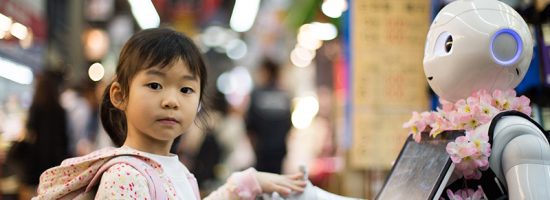search the site
Considering a shared future between humans, post-humans and AI

Cheah Yeok Tatt, The Hong Kong Polytechnic University
The ethics of genetic modification and AI and the portrayal of humanity in Cyberpunk and other sci-fi media are explored in this thought-provoking article.
Click here to read Considering a shared future between humans, post-humans and AI.

Yeok wrote this article in the final year of his undergraduate studies at the Department of Electrical and Information Engineering. He grew up in the warm community of Penang, Malaysia, surrounded by sunny beaches and the passionate engineers of the electronics manufacturing industry in Bayan Lepas. He enjoys writing and discussing challenging and thought-provoking topics. His research interests include the flexible use of deep neural networks (DNNs) not only as predictive models, but also as a tool to interpret complex systems. As part of a multidisciplinary research team at PolyU, he is building an end-to-end AI system to accurately predict muscle fatigue during sports activities.
Author’s Reflection
What will a shared future between humans, post-humans and AI look like? This article developed from a book review written for a CAR EWR subject in my final year of undergraduate study. The 2013 Springer book Engineering the Human: Human Enhancement Between Fiction and Fascination explores the natural, artificial and technological alteration of the human body to enhance mental, physical or reproductive capabilities, presenting relevant scientific developments and fictional works from various eras in history. The book shows us that although circumstances may change, humanity’s dreams and fears are not so different.
My article aims to update, critique, and build on the book’s viewpoints and arguments in three sections: I first discuss important new advances in genetic modification and AI since the books’ publishing. I then offer a critique of the book’s conclusions about ethical and moral issues such as ‘what it means to be human’. Finally, drawing on my love of sci-fi, I update the books’ exploration of related science fiction works with discussions of topics including Cyberpunk, AI and Human-like Agents in sci-fi, and story-driven video games.
In the process of learning about science itself, we seem to lose the child-like wonder for the future and the capacity to dream beyond technical constraints. I’m glad to have spent considerable amounts of time reading and thinking while writing this piece, reconnecting with my younger self – the Yeok who was less concerned with grades and deadlines and absolutely obsessed with exploring the unknown and imagining new possibilities.
Photo by Andy Kelly on Unsplash
Photo origin: https://unsplash.com/photos/0E_vhMVqL9g














